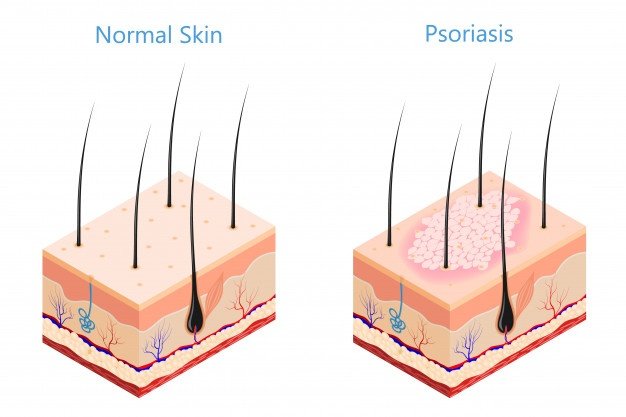Asked for Female | 28 Years
I'm 28 years and suffering from PCOD. I have thick hair in chin, neck and chest. I usually use the epilator to remove the hairs but after 7-10 days, it regrows back. Can you please suggest ways to rid of it permanently?
Answered by Dr. Sayalee Karve
• Polycystic Ovary Disease (PCOD) is caused due to production of immature or partially mature eggs by the ovaries in response to poor lifestyle, obesity, stress and hormonal balance.
• Excessive hair growth in the face, chest and back is associated with imbalance in the male hormone called Testosterone. Other symptoms associated include menstrual irregularity, acne, obesity and insulin resistance.
• Treating the underlying condition which is PCOD will help you get rid of the excessive hair growth.
• Medicine such as Clomifene is recommended for treatment as it encourages monthly release of egg from the ovaries and Metformin is prescribed to reduce the insulin resistance.
Lifestyle changes include:
Dietary Changes –
Optimum diet includes a range of foods from many food categories, including healthy carbohydrates like vegetables and fruits, lean meats like chicken, fish, and high fibre grains.
Foods with a low glycemic index enable the body to release insulin slowly and gradually, allowing your body to utilise food as energy rather than store it as fat. Fiber-rich foods also aid with blood sugar regulation.
Avoid refined carbohydrates, which are found in processed meals such as white flour, rice, potatoes, and sugar. Sugary beverages, such as soda and juice, should also be avoided.
Maintain Healthy weight –
Weight loss should be about half to 1 kg per week for 6 months, with the other method based on the amount of weight lost.
Avoid crash diets since they deprive your body of essential vitamins, carbs, proteins, and minerals.
When you go on a crash diet, your body will actually destroy muscle tissue to supply enough energy for your brain to operate.
Exercise regularly –
Aids in the fight against obesity by burning calories and increasing muscle mass, both of which reduce insulin resistance. Exercise can also help decrease cholesterol and other hormone levels, such as testosterone.
Physical activity is also vital. Moderate amounts of physical exercise for 30 to 45 minutes per day, 3 to 5 days per week, should be encouraged at first.
Consult your Gynecologists for starting with your treatment and take the aid of a nutritionist in order to design a customized diet plan.

Clinical Pharmacologist
Answered by Dr. Ishmeet Kaur
Laser treatment is one of the most commonly suggested options for permanent hair removal in PCOD-related hirsutism. The process attacks hair follicles and over the long run reduces hair growth. Several sessions may be required for the best results. It’s essential to keep managing PCOD with lifestyle modifications, medications, and regular appointments with a physician to target this hormonal imbalance causing hypertrichosis.

Dermatologist
Questions & Answers on "Dermatology" (2836)
Related Blogs

Skin Care during Mumbai Monsoons
Master your skincare routine during Mumbai monsoons. Learn about tips, products, and habits to keep your skin healthy and glowing despite the humid weather.

Should You See a Skin Specialist In Ghaziabad?
Below we have discussed the top 6 reasons why you should visit a skin specialist in Ghaziabad.

Psoriasis Treatment in Delhi: From Symptoms to Treatment
Suffering from Psoriasis! Delhi is one of the best places in India to get Psoriasis Treatment and below we have discussed the topic in depth.

Skin Treatment in Pune: Rejuvenate Your Skin with Expert Care
Below we have discussed why you should visit a skin specialist in Pune. Read the blog to know more.

Kaya Skin Clinic – Prices & Services
Kaya Skin Clinic, a one-stop destination that solves all your skin and hair problems. Further, find precise information regarding different services & prices.
Cost Of Related Treatments In Country
Top Different Category Hospitals In Country
Heart Hospitals in India
Prostate Cancer Treatment Hospitals in India
Kidney Transplant Hospitals in India
Cosmetic And Plastic Surgery Hospitals in India
Dermatology Hospitals in India
Endocrinology Hospitals in India
Gastroenterology Hospitals in India
Gynaecology Hospitals in India
Hematology Hospitals in India
Hepatology Hospitals in India
Top Doctors In Country By Specialty
Top Dermatology Hospitals in Other Cities
Dermatology Hospitals in Chandigarh
Dermatology Hospitals in Delhi
Dermatology Hospitals in Ahmedabad
Dermatology Hospitals in Mysuru
Dermatology Hospitals in Bhopal
Dermatology Hospitals in Mumbai
Dermatology Hospitals in Pune
Dermatology Hospitals in Jaipur
Dermatology Hospitals in Chennai
Dermatology Hospitals in Hyderabad
Dermatology Hospitals in Ghaziabad
Dermatology Hospitals in Kanpur
Dermatology Hospitals in Lucknow
Dermatology Hospitals in Kolkata
- Home >
- Questions >
- I'm 28 years and suffering from PCOD. I have thick hair in c...